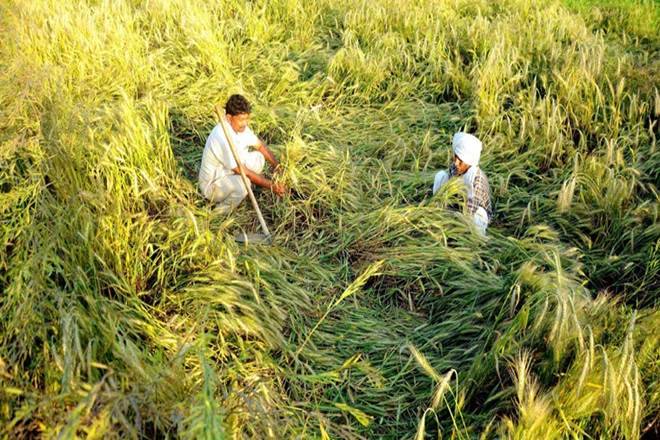 25-02-2020
25-02-2020
PM Fasal Bima premiums may not exceed 40% during upcoming kharif season

 Insurance Alertss
Insurance AlertssPM Fasal Bima premiums may not exceed 40% during upcoming kharif season
The premium under Prime Minister Fasal Bima Yojana (PMFBY) to be quoted by insurance companies may not exceed 40% during the upcoming kharif season —against as high as 75% in many water-stressed and drought-prone area earlier — as most states are unlikely to bear the extra subsidy burden after the Centre’s decision to limit its share of subsidy.
According to a recent Cabinet decision, effective Kharif 2020, the Centre will foot the PMFBY subsidy bill only to the extent of its formulaic share, for a gross premium level of 30% in non-irrigated areas. The onus will be on states if they want to implement the scheme when insurers quote any premium above 30%.
Under PMFBY, launched in 2016, farmers pay 1.5% of sum insured for rabi crops and 2% for kharif, while it is 5% for cash crops. The balance premium is split equally between the Centre and states. During kharif 2018, the premium for jowar crop in Chamrajnagar in Karnataka was 72% of sum insured, while it was 75% for sapota in Thane, Maharashtra. Similarly, the premium for bajra in Jaisalmer, Rajasthan, was 55% during same season. Premiums for crops exceeded 30% in as many as 53 districts in kharif 2018 and the crop insurance scheme put a heavy onus on the Central exchequer. The all-India average premium was 12.17% of sum insured in kharif 2016, which increased to 15.82% during kharif 2019.
Some states, which had already floated tender for kharif 2020, are said to be in the process of cancelling the bids. While Jammu and Kashmir has cancelled the bids, Uttar Pradesh will re-issue the tender as per revised guidelines, sources said. As higher premium rates are necessary to sustain insurance companies’ interest in the country’s 151 water-stressed districts, a separate scheme is under preparation for these areas.
The decision to cap the premium will also help the Centre to check some states who had earlier notified crops not suitable for a district. Such steps of the states resulted in higher premium quoted by the insurers and finally large amount of claims were found to be registered by farmers.
“The government has been focussing on crop diversification from water guzzling crops like paddy from water-stressed areas. After PMFBY, some states started notifying paddy in districts where it was not required and insurers also quoted 45-47% premium. This necessitated a change in policy to cap the premium,” an insurance company official said.
Among other decisions, the government also made enrolment of loanee farmers voluntary and extended the contract period for insurers to three years from one year. The Centre was under pressure to make necessary changes in PMFBY after Andhra Pradesh, West Bengal and Bihar decided to exit the scheme citing high costs and the need to customise it based on geographical diversities. The BJP had promised to make PMFBY optional for loanee farmers in its 2019 general election manifesto.
Source: Financial Express

http://www.insurancealertss.